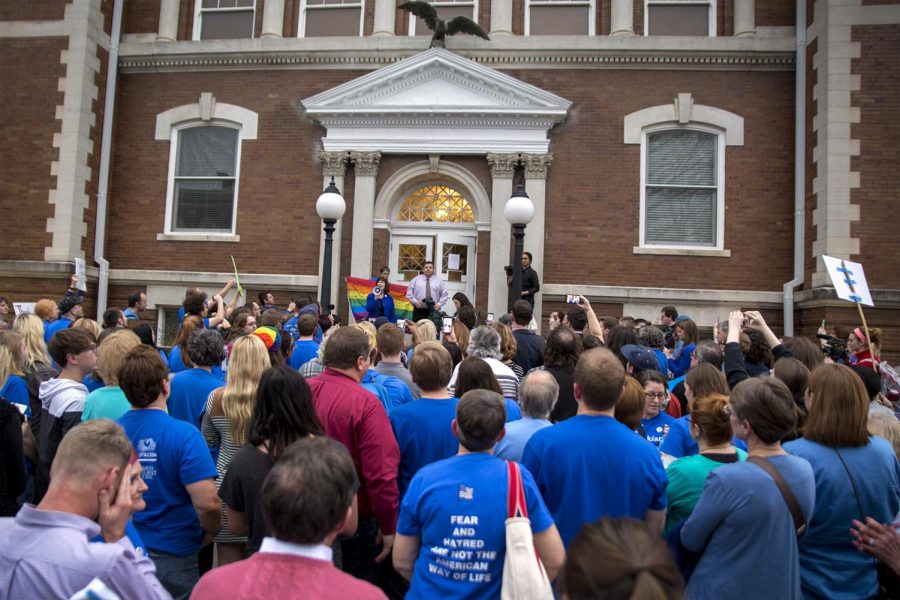Hundreds gather to voice opinion on fairness ordinance
March 8, 2017
Bowling Green residents gathered at City Hall Tuesday to voice their opinions regarding the fairness ordinance, both in support of and against passing it.
Bowling Green mayor and city commissioners listened to testaments from Bowling Green residents concerning the ordinance at a work session during the City Commission meeting.
The fairness ordinance was tabled at the last meeting, and commissioner Brian “Slim” Nash, who has been the only commissioner openly in favor of the ordinance, asked for the work session, a non-binding and non-voting meeting.
As of now, the fairness ordinance is not on any future agenda at this point, according to Nash. In some senses, Nash said, it went nowhere.
Nash said the public discussion that took place at the meeting was exactly what he had hoped for.
“I believe there is much more that unifies us than divides us,” Nash said.
Nash said he believes the next step is to allow the public discussion to sink in within the community, before bringing people together on both sides of the issue, with a community forum.
The meeting lasted until after 8 p.m., with a crowd of people gathered outside in support of the ordinance from before the meeting started and after it concluded as well. 59 people spoke during the meeting, 47 in support of the ordinance and 12 against. Each person was allotted three minutes to speak on the issue for concerns on time.
Mayor Bruce Wilkerson clarified at the conclusion of the session that just because he and the commissioners had listened did not necessarily mean they agreed with the voiced opinions.
Patricia Minter, WKU associate professor of history, spoke at the session on behalf of a group of Bowling Green city employees who wished to remain anonymous.
“It was an honor to speak on behalf of the city employees who are afraid to speak on their own behalf,” Minter said.
Minter said she will be here until people have the rights they deserve and said it was both beautiful and powerful witnessing everyone’s testimonies.
“It’s one thing to talk about these issues, ” Minter said to the crowds after the meeting. “It’s another thing to see it.”
Many Bowling Green residents who spoke in opposition to the ordinance said they felt it unfairly treated them, in regards to their faith and businesses, or that it may compel them to go against their religious convictions. Multiple pastors and ministers in the community spoke at the session in opposition to the ordinance.
James Line, a senior at WKU and member of the SGA, said he believes it’s not a religious issue, but a human one. Line said he identifies as both gay and as a Christian, and it’s all just a part of who he is.
“I want this city to be as welcoming, loving and beautiful as possible,” Line said.
Chants of “we’re still here” filled the air after the meeting.
“I’m here,” Minter told the crowd. “You’re here, we’re still here.”
Reporter Casey McCarthy can be reached at (270)-929-7795 and [email protected].






















![Students cheer for Senator at Large Jaden Marshall after being announced as the Intercultural Student Engagement Center Senator for the 24th Senate on Wednesday, April 17 in the Senate Chamber in DSU. Ive done everything in my power, Ive said it 100 times, to be for the students, Marshall said. So, not only to win, but to hear that reaction for me by the other students is just something that shows people actually care about me [and] really support me.](https://wkuherald.com/wp-content/uploads/2024/04/jadenmarshall-600x422.jpg)

